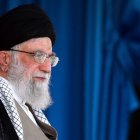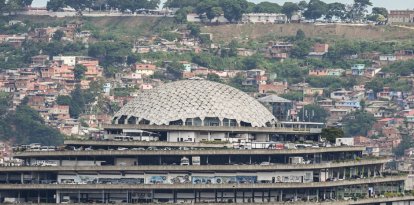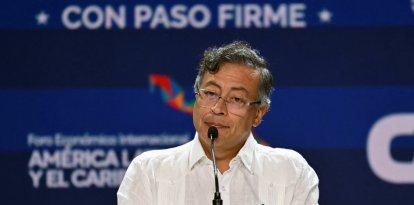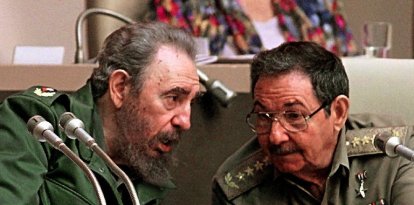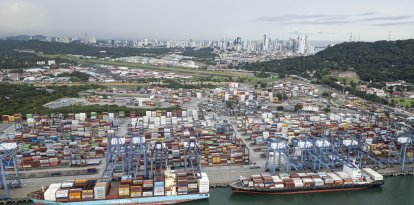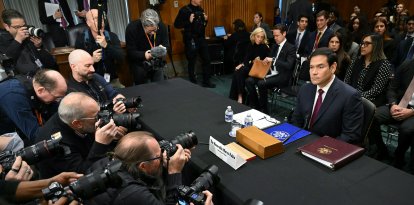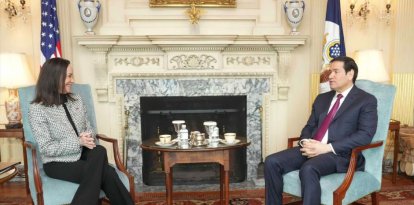Exclusive interview: Latin America, 'a viable terrain for some kind of retaliatory action or attack' by Hezbollah
In an exclusive interview with VOZ, Danilo Gelman, director of the Security, Crisis Management and Counterterrorism Program of the Latin American Jewish Congress, talks about the terrorist threat in the region in the context of the conflict in the Middle East.

Danilo Gelman, director of the Security, Crisis Management and Counterterrorism Program of the Latin American Jewish Congress.
The presence of Hezbollah in Latin America, especially in the Triple Border region between Argentina, Brazil and Paraguay, represents a significant threat due to its illicit funding and operational activities.
In an exclusive conversation with VOZ, Danilo Gelman, director of the Security, Crisis Management and Counterterrorism Program of the Latin American Jewish Congress (LAJC), details how the Lebanese terrorist group operates, the regional challenges to countering it and the implications of the events in the Middle East.
The Triple Border as the epicenter
Gelman identifies the Triple Border as "the main area of concern in Latin America in relation to activities linked to international terrorism, especially with regard to Hezbollah." In this region, "illicit funding operations, money laundering, smuggling and other mechanisms have been documented that allow Hezbollah to sustain part of its global operational structure."
However, he warns that the activities of the Lebanese terrorist group "in Latin America are not limited exclusively to the Triple Border," as associated networks have been detected in other countries, especially where there are Shiite communities with ties to Lebanon or fragile governance conditions.
Hybrid funding networks
Hezbollah operates through "a hybrid network that combines illicit activities, community links and alliances with organized crime structures," Gelman notes. He stresses that its main sources of funding include "smuggling, money laundering, document forgery, drug trafficking and informal trade, often disguised under legal companies that operate as a front."
Gelman explains that these activities are developed in collaboration with transnational criminal networks in weak border zones, in a relationship that is "not ideological, but transactional."
"Confronting this threat requires political will, legal clarity, international cooperation and a long-term strategic vision."
An emblematic case is the attack against the Argentine Israelite Mutual Association (AMIA) in Buenos Aires in 1994, where "the Argentine justice system determined Hezbollah as the material author, with logistical and financial support deployed from the Triple Border," indicates Gelman. And he adds that currently, the group uses "informal fund transfer systems such as the 'hawala,'" an informal method of transferring funds that operates outside traditional banking channels, based on trust and personal relationships between intermediaries. This happens with the backing of Iran, its "main global sponsor," he said.
Insufficient state response
The regional response to this threat varies. Gelman points out that countries such as Argentina, Paraguay and Colombia have designated Hezbollah as a terrorist organization, which allows for "freezing assets, prosecuting crimes linked to financing and strengthening international cooperation." Efforts to improve financial intelligence and coordination with agencies such as INTERPOL and GAFILAT have also been boosted. However, "many countries in the region still lack specific legislation criminalizing terrorist financing as a stand-alone offense" and cooperation between national agencies remains "weak or fragmented," preventing an effective response.
The impact of Israel's operations against Hezbollah, Hamas and Iran
Recent Israeli strikes against Hezbollah, Hamas and Iran in the Middle East have affected their leadership structures, but Gelman believes that "the direct impact on their networks in Latin America is more difficult to measure and, in structural terms, probably limited." This is because regional networks are "decentralized, adaptive and designed to withstand external pressures."
While a prolonged weakening of Hezbollah or its relationship with Iran could have "spillover effects" in Latin America, there is also the risk that, in the face of an escalation in the Middle East, the group may seek to "reinforce or activate capabilities" in the region as a form of "asymmetric retaliation."
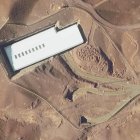

Politics
As Trump considers a strike on Iran, FBI increases surveillance of suspected Hezbollah-linked terror cells in the US
Emmanuel Alejandro Rondón
Iran's historical role
Gelman recalls that Iran has demonstrated "the capacity and willingness to project retaliation beyond its immediate surroundings," as in the 1992 attacks against the Israeli embassy in Argentina and 1994 against the AMIA in Buenos Aires, executed by Hezbollah with Iranian support, according to the Argentine Justice Ministry.
In a scenario of weakening of the Iranian regime, Latin America could be seen as "a viable ground for some kind of action or retaliatory attack" due to Hezbollah's operational presence and low control capacity in some countries.
Strategies to reduce the threat
Completely eliminating the threat of Hezbollah is "complex," but Gelman argues that "it is indeed possible to significantly reduce its reach and operational capability through a comprehensive approach."
He proposes that more countries declare Hezbollah a terrorist organization "in its entirety, without making artificial distinctions between 'political' and 'military.'" He also urges improving legislative frameworks to enable "early intervention in the face of substantiated indications of terrorist activities" and strengthening international and inter-agency cooperation.
Finally, he emphasizes the need for "sustained investment in training of officials, development of technical capabilities, and early detection mechanisms."
"Confronting this threat requires political will, legal clarity, international cooperation and a long-term strategic vision," concludes Gelman.






